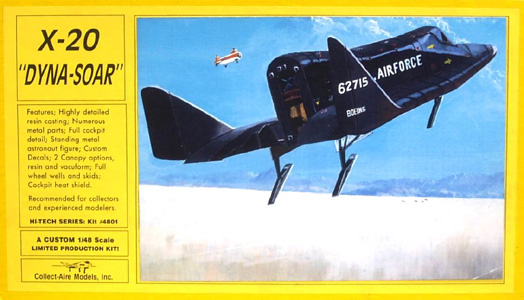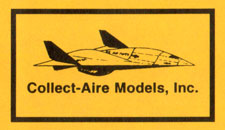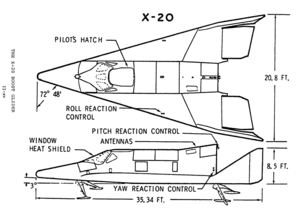Boeing X-20 Dyna-Soar (1959)
About the Design
Conceived in 1957 and formally initiated in 1959, Boeing's X-20 "Dyna-Soar" (short for Dynamic Soaring) was a one-man reusable military space-plane designed to be launched vertically atop a Titan rocket and then land horizontally as an unpowered glider (similar to the Space Shuttle). An Air Force project, the craft was intended to be used for military missions such as satellite repair, photo surveillance and electronic intelligence gathering. Later versions were to operate as miniature space stations and nuclear bomb platforms.
The craft's design was based on the works of German Dr. Eugene Sänger, who 20 years earlier had proposed a rocket-powered bomber that would "skip" across the upper atmosphere and thus be capable of hitting targets anywhere in the world. Although considered the logical successor to the X-15, the X-20 never made it beyond the mockup stage. The American government's growing insistence that the space program be a civilian enterprise led to the program's cancellation in 1967. |
About the Kit
This 1/48 scale multi-media kit by Collect-Aire Models was first released in 1990. It featured a solid resin main body and resin and metal detail parts, including landing legs and skids, landing gear bay doors, the ejector seat, and an in-scale standing astronaut figure (not shown).
The kit came with either a removable solid or clear vacuform cockpit hatch, either of which allowed the viewer to see the detailed interior. This model was built from a 2002 issue. |



